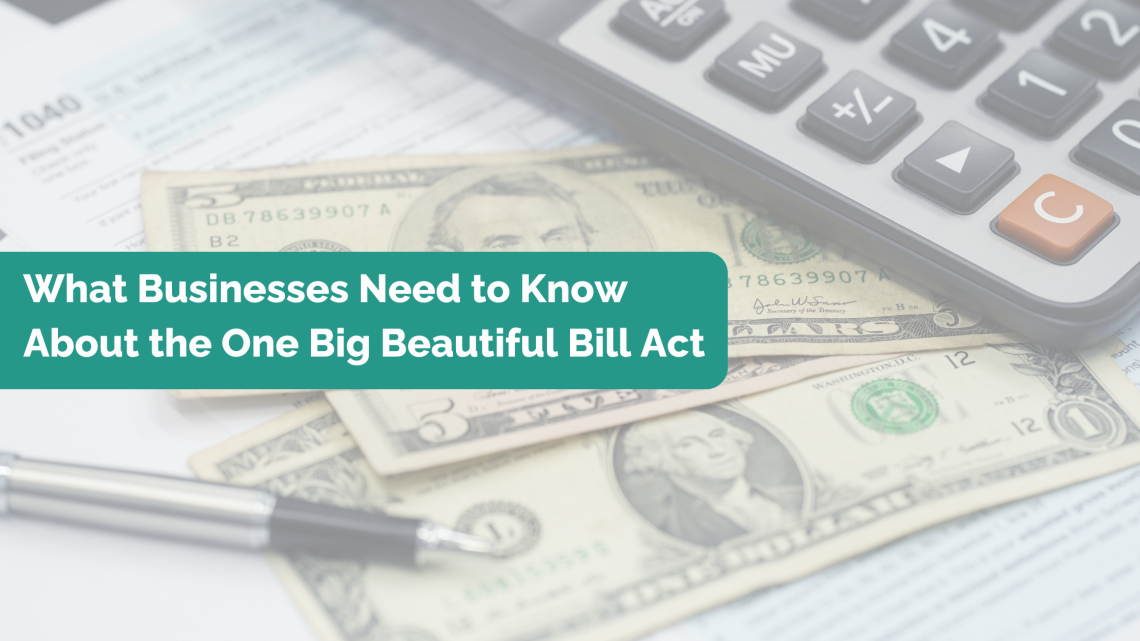The One Big Beautiful Bill Act includes several provisions designed to support small businesses, encourage investment, and provide long-term tax certainty. Whether you are self-employed, operate a partnership or S-corporation, or run a growing company with employees and equipment, these updates could positively affect your bottom line.
Permanent 20% Pass-Through Deduction
The 20% deduction for pass-through income, originally introduced in the 2017 tax law, is now permanent. This means that qualified business owners (such as sole proprietors, LLCs, partnerships, and S-corporations) can continue to deduct 20% of their qualified business income each year, reducing their taxable income and overall tax bill. Some limits still apply based on income and business type, but this remains a valuable benefit for small businesses.
100% Bonus Depreciation Restored
The law reinstates full 100% bonus depreciation, allowing businesses to immediately deduct the entire cost of qualifying equipment, machinery, and other short-lived, tangible assets in the year they are placed in service. This provision had been scheduled to phase out. Its return may help business owners invest in tools and technology without waiting years to recover costs through depreciation.
Note: Bonus depreciation generally does not apply to land or buildings but may apply to certain improvements made to existing commercial property.
Full Expensing of Research and Development (R&D) Costs
Businesses can once again deduct all qualifying domestic R&D costs in the year they are incurred. Previously, these costs had to be amortized out over five years, which created cash flow challenges for many companies. This change is especially helpful for startups and innovation-driven businesses that rely on ongoing product or process development.
Expanded Interest Deduction for Business Loans
The Act loosens limitations on interest deductions for business loans. This makes it easier for companies that rely on financing—such as those in construction, real estate, or manufacturing—to deduct more of their interest expenses, improving cash flow and reducing tax liability.
Estate Tax Relief for Family-Owned Businesses and Farms
To help family-owned businesses transition across generations, the law increases the exemption for federal estate taxes on farms and closely held businesses. While details may vary based on total estate value and other assets, this provision is designed to reduce the risk of estate taxes forcing a sale or breakup of family operations.
Final Thoughts
Whether you run a small business or manage a larger operation, the One Big Beautiful Bill Act introduces tax strategies that may strengthen your financial outlook. Some provisions take effect beginning in 2025 and beyond. For details specific to individual taxpayers and families, be sure to read our companion article covering those updates.
Also, keep an eye on your email for additional articles related to this new bill—including our next feature on important changes to 1099 reporting rules.
If you have questions about how these updates affect you or your business, we are here to help. Reach out to our team here to schedule a review or to discuss next steps in preparing for the 2025 tax season.
Sources:
https://www.whitehouse.gov/obbb
One Big Beautiful Bill Review: How it Could Change Your Finances



